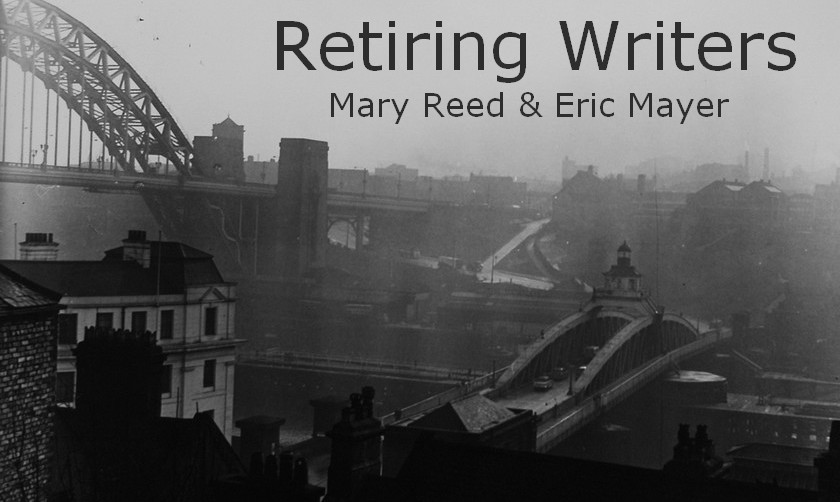In her latest blog, Questioning a Master? mystery author Triss Stein reminds us that Elmore Leonard famously wrote a list of writing instructions that began with “Never open a book with weather.” Triss goes on to say "that first rule has always bothered me. Here’s why: where I grew up , weather can be a major player in that game called life we are playing and writing about."
As it happens I lived for almost twenty years in upstate New York myself and when you have to deal with 130 inches of snow in the winter it makes Leonard's rule seem a bit foolish.
A few years ago I wrote an essay for the Orphan Scrivener(the newsletter Mary and I have been putting out since 2000) in which I also disagreed with the master. I'm reprinting it without change. As it was in 2008, it has been in the nineties here this week, and Mary and I have certainly not been able to ignore it.
For the past week Mary and I have tried to get a little writing done while we sweltered in 90 degree temperatures and watched bright red thunderstorms brush past us on the National Weather Service radar. Aside from a handful of half-inch bits of ice which quickly turned to droplets on the sun porch roof, the storms let us alone. The power stayed on and we suffered only from heat and distraction, which was bad enough.
I was reminded of Elmore Leonard's silly first rule of his Ten Rules of Writing -- "Never open a book with weather."
What? Never open a book by mentioning the element we're all swimming in? Weather affects how we feel physically and can color our outlook too. Of course, reading what I write, someone might suppose I was a frustrated meteorologist. There's a weather report every other page of our books and if it's not already teeming, rain is in the forecast. My Constantinople tends to be a dark and stormy place.
No doubt what I write reflects my personal preoccupation with the state of the atmosphere. I tend to be very aware of the weather. It affects my moods and changes my perceptions. The world of a cold winter morning is a far different place than that of a humid summer afternoon, and certainly important enough to mention at the start of a book.
Or is that just me? What about other writers? I opened up some books close to hand at random. Here are some first lines I came across in a few minutes:
"On an exceptionally hot evening early in July a young man came out of the garret in which he lodged in S. Place and walked slowly, as though in hesitation, towards K. bridge." -- Fyodor Dostoevsky, Crime and Punishment
"To the red country and part of the gray country of Oklahoma, the last rains came gently, and they did not cut the scarred earth." ---John Steinbeck, The Grapes of Wrath
"The cold passed reluctantly from the earth, and the retiring fogs revealed an army stretched out on the hills, resting." -- Stephen Crane, The Red Badge of Courage
Well, Okay, so what do all those old time writers know? How about someone newer:
"A big noisy wind out of the northeast, full of a February chill, herded the tourists off the afternoon beach, driving them to cover, complaining bitterly." -- John D. MacDonald, The Quick Red Fox
Glancing through Travis McGee books it struck me that every other one began with a reference to the weather. How about something totally different, though -- a fantasy written recently:
"Thunderstorms were common in Sarantium on midsummer nights..."-- Guy Gavriel Kay, Sailing to Sarantium
See, someone else thinks thunderstorms are important.
To be fair, as soon as Leonard stated his rule he admitted he was blowing hot air. "Never open a book with weather," he said. "If it's only to create atmosphere, and not a character's reaction to the weather, you don't want to go on too long. The reader is apt to leaf ahead looking for people. There are exceptions. If you happen to be Barry Lopez, who has more ways to describe ice and snow than an Eskimo, you can do all the weather reporting you want."
Don't start with the weather unless it has to do with the story or you can write brilliantly enough to get away with it. That's probably good advice, generally, but it applies to anything. Not just to weather. And besides, I still think most of the writers I quoted broke Leonard's rule because most of those first lines strike me as being mainly for the sake of atmosphere.
My rules of writing are more concise than Elmore Leonard's:
Rule 1 -- There are no rules.
Oh, and let's not forget that Mike Hammer makes his first appearance coming through a doorway and shaking rain off his hat.
I could use some rain on my hat right now. The office is stuffy. Hot weather makes me curt and cranky. Not that I ought to write about it.

